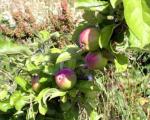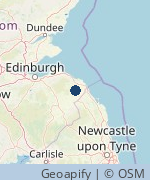Hic, Haec, Hoc: Cider and the Roman Army
Dr Mike Bishop
- Regions:
- England, Scotland, Wales
- Notice Period:
- Regular (more than one month's notice)
- Type:
- historical and archaeological societies
- Fee:
- Expensed
- Category:
- History
- Updated:
- 7th July 2024
The evidence for cider in the ancient world is at times ambiguous, but a number of what are now seen as traditional cider-making regions in the ancient world contributed soldiers to the Roman army in Britain. Could cider-making and -drinking pre-date the Normans in Britain?
Views: 692 | Enquiries: 1About Dr Mike Bishop
I am a freelance writer, publisher, and archaeologist who specialises in the study of the Roman army. I have excavated within the Roman forts at Chester-le-Street, Newton-on-Trent, and Osmanthorpe, and in the civil settlements outside the forts at Brough-on-Noe, Inveresk, and Roecliffe. I was co-author of the publication reports on the Roman fort and town at Corbridge and the fort at Housesteads (both English Heritage backlog projects) and have catalogued collections of material for English Heritage at Aldborough and at the Hadrian’s Wall Museums of Corbridge, Chesters, and Housesteads. I have also worked in satellite photo interpretation for the EAMENA (Endangered Archaeology in the Middle East and North Africa) project at the University of Oxford. I am the editor of the Journal of Roman Military Equipment Studies, a contributor to the Wiley-Blackwell Encyclopedia of the Roman Army, and am co-author of a diachronic study of Roman arms and armour, as well as several popular books on Roman weaponry, legionary fortresses, and the Roman roads of Britain. I am a Fellow of the Society of Antiquaries of London, a Fellow of the Society of Antiquaries of Scotland, and have been a member of the Society for the Promotion of Roman Studies for over forty years, and am a Trustee of the Corbridge Excavation Fund. I have lectured widely to both local and national societies and institutions and at academic conferences, and have taught in further (adult) education (with a City & Guilds 7307 certificate).
Send a message to the speaker
If you are interested in this talk and wish to contact the speaker, please complete the following form:

